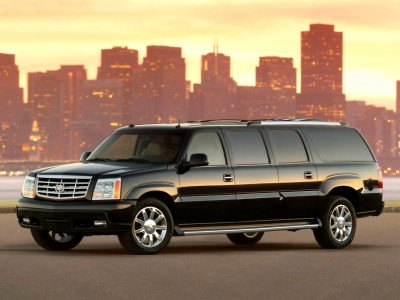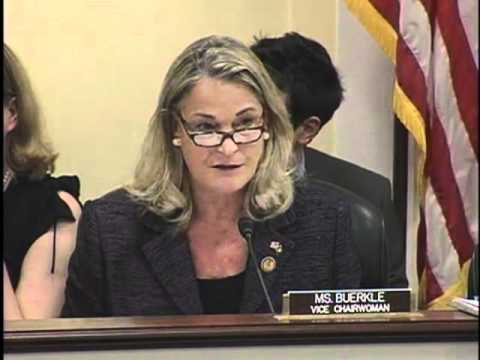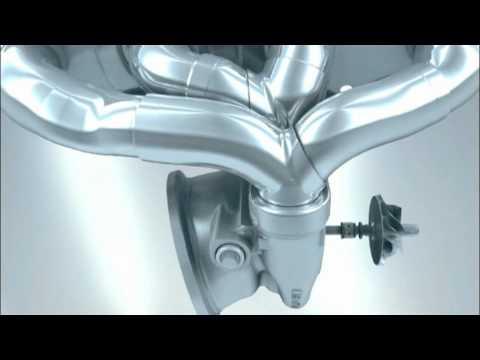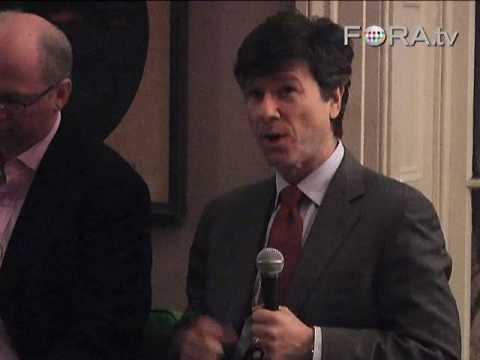#cafe
MIT Professor: Put Cars On A Diet!
The car industry is under pressure to improve fuel efficiency. It is not that they have been sitting on their thumbs. Automakers have achieved large increases in fuel efficiency through better technology in recent decades, says MIT economist Christopher Knittel.
The problem is:
“Most of that technological progress has gone into compensating for weight and horsepower.”
Feds Predict The Future Of The Auto Industry, Foresee Chrysler Freefall, GM Stagnation
Reasonable minds can disagree about the wisdom of the auto bailout, but according to analysis by the EPA and Department of Transportation (based on data from the Department of Energy and auto forecasters CSM), the Government’s rescue of GM and Chrysler may not have been the best idea (at least from a market perspective). According to data buried in the EPA/DOT proposed rule for 2017-2025 fuel economy standards [ PDF here], Fiat-Chrysler is predicted to be the sick man of the auto industry by 2025, losing over half of its 2008 sales volume, while GM is expected to improve by only 3%, the second-worst projected performance (after Aston-Martin). In terms of percentages, even lowly Suzuki and Mitsubishi are projected to grow faster than The Mighty General. Ouch.
On the other hand, the proposed rule notes that data will be finalized before the final rule comes out. Besides, the agencies appropriately admit (in as many words) that projecting auto sales so far into the future is one hell of a crapshoot. Still, with the obvious exception of “Saab-Spyker” and with some skepticism about the projection’s optimism about overall market growth aside, these are not the craziest guesses I could imagine. Who knows what the future holds, but it certainly is a bit troubling that the government’s own data suggests the two automakers it bailed out may well have some of the weaker performances of the next 14 years. At least the Treasury could have sold off their remaining GM stock before this report was released…
EPA Releases 2017-2025 CAFE Proposed Rule
Over the last few days we’ve been discussing the implications of the growing gap between global oil demand and production, looking at the responses of a global automaker, a radical startup and the oil industry itself. And make no mistake, it’s an uncertain future out there… unless you’re selling cars in the US. In that case, your future just arrived, planned all the way through 2025. That is, if you think this proposed rule will survive four presidential elections and one industry-government “mid-term review.” Want to familiarize yourself with this pre-planned fuel economy future? All 893 pages await your perusal, in PDF format here. Or, hit the jump for a few broad strokes.
Head Of Global Industry Body Says U.S. Makers Lose Their Moxie
The president of the International Association of Vehicle Manufacturers OICA says that U.S. auto makers risk being left behind. In an interview with Wardsauto, OICA-head Patrick Blain warned that European and Asian car companies are setting the pace while working together with their governments to reduce emissions and rising fuel costs.
OICA is the world’s umbrella organization of all auto manufacturer associations. OICA also represents the global auto industry at the United Nations. As OICA president, Blain is the auto industry’s ambassador to the UN.
Anwyl: CAFE Proposals "Ignore Consumers" Who Are "Not On Board"
The Congressional Subcommittee on Regulatory Affairs, Stimulus Oversight and Government Spending held hearings this week on proposed CAFE standards, as part of Chairman Darryl Issa’s investigation of the regulations. The first panel’s testimony can be seen in its entirety in the video above (all prepared testimony can be found in PDF format here), and it’s worth watching. Though the predictable D.C. partisanship certainly shows up, Anwyl’s testimony was the highlight the hearing, being a tough but fair analysis of the standards. Hit the jump for a brief roundup.
White House Delays CAFE Announcement As Jobs, Downsizing Achievments Come Under Fire
Though the Obama Administration has announced the broad outlines of its 2017-2025 CAFE standard, the final rule wasn’t supposed to be released until the end of this week… and now, according to Reuters, it is delaying that release until mid-November. According to Reuters
The administration would, with a short delay, remain on track to meet its deadline for issuing final rules next July, five years before they take effect. That timeline gives the industry room to plan its vehicle mix and make any production or technology changes…
But sources familiar with the matter said the work is complex and time consuming. Regulators, they said, are purposely moving slower than anticipated to ensure that industry, environmental and consumer issues likely to be raised during a lengthy public comment period are addressed ahead of time.
Regulators also want to make sure the proposal can clear the White House budget office, which reviews proposed regulations, in a timely fashion.
But even as regulators work to anticipate criticisms of the new standard, more criticisms are materializing. From the mitigating impact of loopholes added late in the process to the regulation’s effect on jobs, the CAFE criticisms are stacking up.
BMW: Don't Fear The Four
It’s been 12 years since BMW offered a four-cylinder engine on a US-market offering, but starting this October, US dealers will begin offering new “TwinPower”four-pot versions of the Z4 roadster and 5-series sedan. And, as BMW’s US-market boss Jim O’Donnell explains to Automotive News [sub], there’s no reason to fear the four… anymore.
It wasn’t in line with our image, because it didn’t have the performance of the six cylinder. We were selling ourselves as the ultimate driving machine and really it wasn’t. Now that the engines have developed so far, it’s not an issue at all.
But now BMW is offering four-bangers because they offer an even better driving experience, right? Less weight, better turn-in, that kind of thing… right?
Why Toyota And Ford Hooked Up: It's The CAFE Credits, Stupid
Today’s announcement of a memorandum of understanding between Ford and Toyota, uniting the two firms’ pickup truck hybrid drivetrain efforts, took quite a few industry-watchers by surprise this morning. As the industry leader in hybrid technology, Toyota has limited past hybrid cooperation to licensing its drivetrain wholesale to Nissan and a patent-sharing agreement with Ford. Moreover, the last big alliance aimed at developing hybrid technology for full-sized pickups, the Two-Mode V8 hybrids developed jointly by GM, Chrysler, Mercedes and BMW, have been a huge flop on the market, with the German partners walking away from the technology after using it in only a single application each (X5/X6, and ML Hybrid). Though Toyota and Ford have worked together to prevent a messy patent war over hybrid technology, there was little to suggest that they would take the cooperation any further, let alone join forces to hybridize full-size pickups. But if you’re looking to the marketplace to explain the Ford-Toyota tie-up, you’re looking in the wrong place: this is all about the freshly-announced CAFE standard and its generous credit system.
2017-2025 CAFE Details Emerge, Loopholes Appear Gaping
A final rule for 2017-2025 CAFE standards won’t be published until September, but a pre-publication notice by the EPA [ PDF here] reveals some of the key details we’ve been looking for. The broad strokes, which we are already well aware of are shaping up as follows:
NHTSA currently intends to propose standards that would be projected to require, on an average industry fleet wide basis, 40.9 mpg in model year 2021, and 49.6 mpg in model year 2025. For passenger cars, the annual increase in stringency between model years 2017 to 2021 is expected to average 4.1 percent, and to average 4.3 percent between model years 2017 and 2025. Like EPA, in recognition of the utility requirements of full-size pick-up trucks and the unique challenges to improving fuel economy compared to other light-duty trucks and passenger cars, NHTSA intends to propose a lower annual rate of improvement for light-duty trucks in the early years of the program. For light-duty trucks, the proposed overall annual rate of fuel economy improvement in model years 2017 through 2021 would be 2.9 percent per year. NHTSA expects to change the slopes of the fuel economy footprint curves for light-duty trucks from those in the 2012-2016 rule, which would effectively make the annual rate of improvement for smaller light-duty trucks in model years 2017 through 2021 higher than 2.9 percent, and the annual rate of improvement for larger light-duty trucks over the same time period lower than 2.9 percent. For model years 2022 through 2025, NHTSA expects to propose conditional standards with an overall annual rate of fuel economy improvement for light-duty trucks of 4.7 percent per year
We had heard that trucks would improve their efficiency at a rate of 3.5% rather than 2.9% for the 2017-2021, and a 2022-2025 growth rate of 5% rather than 4.7%. But then, cars were supposed to improve by 5% in the 2017-2025 period, so both truck and car standards seem likely to end up lower than what the president’s report seemed to promise. But that’s not the only bad news for anyone hoping for tough fuel efficiency standards (or, good news for truck-dependent automakers)… with the release of this notice, we have an initial sense of the loopholes that will be included, and they appear to be of the hefty variety.
Wild-Ass Rumor Of The Day: VW and Mercedes Oppose CAFE Because Their Arab Masters Tell Them To
Today’s wild-ass rumor of the day really lives up to its wild-ass billing, combining equal parts conspiracy theory and ressentiment for a high-proof cocktail of crazy. In a blog (i.e. not very well thought-through) item at Automotive News [sub], Industry Editor James Treece primes the loco pump with an intriguing proposition:
Some commentators and bloggers assume that ownership explains what goes on in the auto industry. They argue that GM and Chrysler management have repeatedly bowed to the desires of their government and union owners over the last two years, and that government ownership has perverted the market in other ways as well.
Well, if that’s so, it’s fair to ask the same question about the latest fuel-economy rules — and the companies that oppose them.
Already the crazy is starting to show: the Detroit automakers are widely recognized to be the chief beneficiaries of the “compromise” modifications to Obama’s proposal. So if government-owned automakers didn’t actually roll over for regulators, why legitimize the crackpot theories of “some commentators and bloggers”? Because Treece has a crackpot theory of his own…
Republicans Attempt To Gut CAFE Through EPA Funding Bill
With the high political drama surrounding America’s debt ceiling crisis, last Friday’s CAFE announcement received much less attention from the media than it might have. But, flying even further beneath the radar is an attempt by Republicans to undo the fuel economy agreement that was the result of long negotiations. According to the NYT, some 39 “anti environmental” riders were attached to an Interior Department and EPA appropriations bill, including one which reads
Sec. 453. None of the funds made available under this Act shall be used— (1) to prepare, propose, promulgate, finalize, implement, or enforce any regulation pursuant to section 202 of the Clean Air Act (42 U.S.C. 7521) regarding the regulation of any greenhouse gas emissions from new motor vehicles or new motor vehicle engines that are manufactured after model year 2016 to address climate change.
Though one rider, which would have prevented any new listings on the Endangered Species Act lists of threatened and endangered species, was defeated, the NYT reports that the fuel economy rider is still pending. Politico adds that the bill is scheduled to go to the House floor today, but that President Obama is already threatening to veto the bill. Having worked with California, environmental groups and the auto industry to hammer out a compromise, it’s unlikely that the White House will approve any final bill that includes a measure to gut the new 2016-2025 standard… but the fact that Republicans are trying to eliminate the EPA’s ability to regulate fuel economy indicates that someone, somewhere wouldn’t mind seeing the newly-approved CAFE standard gutted.
White House Releases Fuel Economy Report, Loopholes Still Out Of Sight
The announcement of President Obama’s proposed 54.5 MPG 2025 CAFE standard was hailed nearly unanimously today in a ceremony attended by many auto industry executives as well as government officials. Volkswagen and Daimler were conspicuous by their absence, as the Bloomberg quotes VeeDub spokesman Tony Cervone arguing
The proposal encourages manufacturers and customers to shift toward larger, less-efficient vehicles, defeating the goal of reduced greenhouse-gas emissions,
while Reuters notes Daimler’s response
Mercedes-Benz, the luxury car line owned by German car and truck maker Daimler, did not back the new program, saying it “clearly favors large SUVs and pickup trucks.”
“Our customers expect a range of vehicles from which to choose so this program creates a very real disconnect between government regulation and customer demand,” the carmaker said in a statement.
But are these concerns well-grounded? We don’t know yet, as the details of the proposal (specifically the loophole details) have not yet been released. Instead of publicizing the full rule, the White House released a report [ PDF], highlighting the easy-to-like aspects of the proposed rule. But how easy-to-like is the standard really?
With Support From At Least Eight Automakers, White House To Unveil 2025 CAFE Proposal Tomorrow
After the apocalyptic warning from the industry about a proposed 56.2 MPG 2025 CAFE standard, the auto industry seems to be backing the White House’s latest proposal, which reduces the 2025 target to 54.5 MPG, slows the rate of efficiency improvement for trucks and increases advanced technology credit loopholes. Another key consideration: the White House agreed to a mid-term review of the 2025 standards to ensure they reflect the market. Plus, the DetN points to a previously unheard-of compromise to keep big trucks cheap:
The plan is also carving out special rules for “work trucks” — heavier light duty vehicles used for construction.
As a result of these compromises, the WSJ [sub] reports:
As of Wednesday, Toyota Motor Corp., General Motors Co., Ford Motor Co., Chrysler Group LLC, Honda Motor Co., Hyundai Motor Co., Nissan Motor Co., BMW AG and Volvo had told the administration they would support the plan
With the industry now largely on board, the Obama Administration has a green light to announce its new standard at a ceremony planned for tomorrow. But not everyone is happy with the new proposal…
White House Buckles To Industry Pressure, Reduces 2025 CAFE Goal to 54.5 MPG
How CAFE Helps The Market Function
Dare to suggest that a strong CAFE standard won’t ruin any automaker, and you’ll be overwhelmed by deafening cries of “what about the market,” “think of consumer choice,” and “don’t you tell me what to drive.” Now, I’ve made it very clear that I’m not a huge CAFE fan, but the fact of the matter is that since nobody is leading a charge for a gas tax (least of all the industry that says it would be a good thing) it’s the only option on the table. Which leaves just one question: why regulate fuel economy at all? There are all kinds of arguments against regulating fuel economy, but most stem from a desire to “let the market do its thing.” That’s an argument I’m highly sympathetic towards, but it doesn’t necessarily require that the government but out and let the era of cheap, thirsty trucks roll on unabated. What maybe, just maybe, if the market actually wants more fuel economy? Well guess what campers… according to research by IHS Global Insight [via Automotive News [sub], the market does want more fuel economy.





















Recent Comments